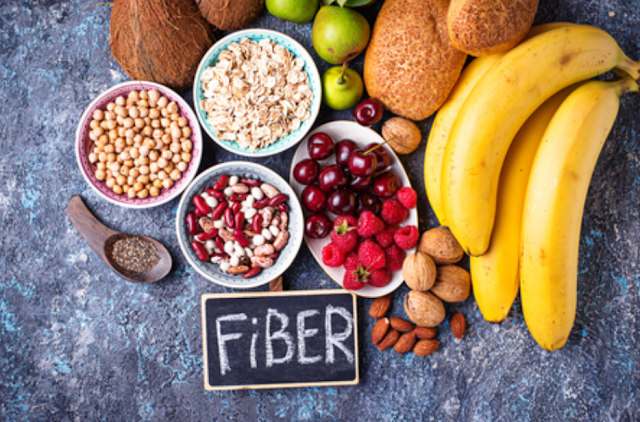The Unsung Hero: How Fiber Can Significantly Lower Your Cancer Risk
The Unsung Hero: How Fiber Can Significantly Lower Your Cancer Risk
Cancer, one of the leading causes of death worldwide, is a complex and multifaceted disease. While cancer risk factors vary, one often-overlooked but powerful ally in cancer prevention is dietary fiber. Fiber, found in fruits, vegetables, whole grains, and legumes, has long been celebrated for its role in digestive health. However, its impact on cancer prevention is a subject that warrants recognition and exploration. In this comprehensive article, we will delve into the intricate relationship between dietary fiber and cancer risk reduction, explore the science behind this connection, and discuss Nobel-worthy advancements in cancer research and preventive nutrition that continue to shape our understanding of this critical topic.
Understanding Cancer Risk Factors
Before we explore the role of fiber in cancer prevention, it's essential to understand some key risk factors associated with cancer:
- Dietary Habits: Diets high in processed foods, red and processed meats, and low in fruits and vegetables are linked to a higher cancer risk.
- Obesity: Excess body weight and obesity increase the risk of several types of cancer, including breast, colorectal, and endometrial cancer.
- Physical Activity: A sedentary lifestyle is associated with an increased risk of certain cancers, such as colorectal cancer.
- Tobacco and Alcohol: Smoking and excessive alcohol consumption are known risk factors for various types of cancer, including lung, mouth, throat, and liver cancer.
- Environmental Exposures: Exposure to carcinogens in the environment, such as asbestos and radiation, can contribute to cancer development.
- Genetics: Inherited gene mutations can increase the likelihood of developing specific types of cancer, such as breast and ovarian cancer.
The Role of Dietary Fiber in Cancer Prevention
Dietary fiber is a type of carbohydrate found in plant-based foods that cannot be digested by the human body. It comes in two forms: soluble and insoluble fiber. While both types offer various health benefits, it is soluble fiber that plays a more prominent role in cancer prevention.
The Science Behind Fiber and Cancer Risk Reduction
- Digestive Health: Fiber promotes regular bowel movements and helps prevent constipation. This may reduce the time that harmful substances remain in contact with the colon lining, potentially lowering the risk of colorectal cancer.
- Reduced Insulin Levels: Soluble fiber can slow down the absorption of sugar, leading to better blood sugar control. This, in turn, may help reduce the risk of certain cancers, as high insulin levels have been associated with cancer growth.
- Altered Gut Microbiota: Fiber acts as a prebiotic, promoting the growth of beneficial gut bacteria. A balanced gut microbiome is thought to play a role in reducing inflammation and cancer risk.
- Reduced Inflammation: Chronic inflammation is a risk factor for cancer. Fiber-rich diets are known to reduce inflammation in the body.
- Binding to Carcinogens: Fiber can bind to potential carcinogens in the digestive tract, preventing their absorption and minimizing their contact with the intestinal lining.
Types of Cancer Associated with Fiber Consumption
- Colorectal Cancer: Numerous studies have shown a consistent association between high dietary fiber intake and a reduced risk of colorectal cancer. Soluble fiber, in particular, has been linked to a lower risk.
- Breast Cancer: Some research suggests that a diet rich in dietary fiber may be associated with a reduced risk of breast cancer.
- Other Cancers: While the evidence is less robust, fiber consumption has been studied in relation to other cancers, including gastric, esophageal, and ovarian cancer.
How to Incorporate More Fiber into Your Diet
- Fruits and Vegetables: Aim to fill half your plate with fruits and vegetables. These foods are naturally high in fiber, vitamins, and antioxidants.
- Whole Grains: Choose whole grains like brown rice, quinoa, and whole wheat pasta over refined grains.
- Legumes: Beans, lentils, and chickpeas are excellent sources of fiber. Incorporate them into soups, salads, and main dishes.
- Nuts and Seeds: Snack on nuts and seeds like almonds, chia seeds, and flaxseeds for an extra fiber boost.
- Limit Processed Foods: Reduce your consumption of processed foods, which are typically low in fiber and high in unhealthy fats and sugars.
Nobel-Worthy Advancements in Cancer Research and Preventive Nutrition
Nobel-worthy efforts in cancer research and preventive nutrition are continually advancing our understanding of how dietary factors, including fiber, impact cancer risk:
- Nutrigenomics: Nobel-worthy research in nutrigenomics explores how an individual's genetic makeup interacts with dietary choices to influence cancer risk, paving the way for personalized dietary recommendations.
- Cancer Immunotherapy: Advancements in cancer immunotherapy have the potential to transform cancer treatment by harnessing the body's immune system to target cancer cells.
- Precision Medicine: The development of precision medicine approaches in oncology tailors cancer treatments to an individual's specific cancer subtype, genetic mutations, and dietary needs.
- Dietary Guidelines: Nobel-worthy efforts may focus on developing evidence-based dietary guidelines that emphasize the role of dietary fiber and other nutrients in cancer prevention.
Conclusion
Dietary fiber is an unsung hero in cancer prevention, offering a myriad of health benefits, including a significant reduction in cancer risk. By embracing a diet rich in fiber-rich foods, individuals can empower themselves to lower their cancer risk and enhance their overall well-being.

















No comments